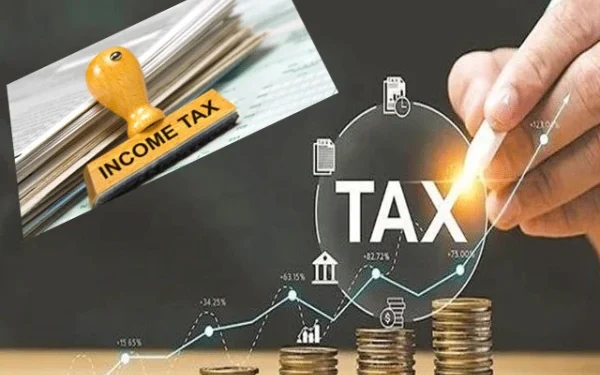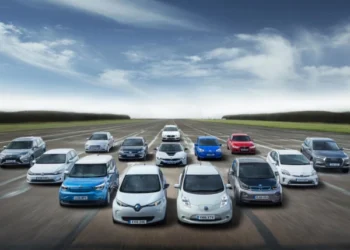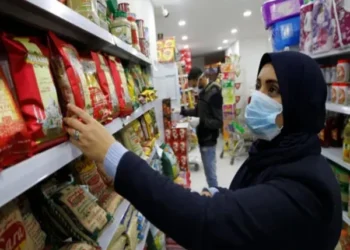Islamabad: A Major Step Towards Tax Reform
Finance Minister Senator Aurangzeb has announced that a new simplified tax return system for salaried individuals will be introduced in September 2025. This initiative aims to streamline the tax filing process, ensuring that it is in place before the upcoming tax filing season. The move is part of the government’s broader strategy to increase tax compliance and reduce the burden on high-tax segments, such as salaried employees and the manufacturing sector.
Objective: Expanding the Tax Net
During a meeting with a delegation from AI technology firm Affinity, the Finance Minister emphasized the government’s commitment to expanding the tax net. The strategy is to bring previously unregistered sectors under the tax umbrella, allowing for a more balanced distribution of tax obligations. By including more businesses and individuals in the tax framework, the government aims to create a fairer system where tax burdens are shared more equitably.
The meeting also focused on Affinity’s growing business activities in Pakistan, particularly in talent hiring and tax system-related challenges. The Finance Minister reiterated that the government remains committed to facilitating businesses while ensuring sustainable economic growth.
Pakistan Crypto Council and Technological Advancements
A key highlight of the discussion was the establishment of the Pakistan Crypto Council. The government has been exploring digital currency regulations and innovative financial solutions to integrate blockchain technology into the country’s economy. This move aligns with global financial trends and demonstrates Pakistan’s interest in adapting to modern financial practices.
Jerome Van Caples, the head of the Affinity delegation, lauded Pakistan’s workforce, emphasizing that 80% of the company’s employees are based in Karachi, Lahore, and Islamabad. He specifically praised the country’s engineers, computer scientists, and technologists, acknowledging their role in Affinity’s success and the broader technological advancement of Pakistan.
World Bank Partnership and Economic Reforms
In a separate follow-up meeting with the World Bank team, Finance Minister Aurangzeb highlighted the necessity of implementing a comprehensive and integrated strategy for financial, trade, and private sector reforms. He stressed that these reforms must be applied uniformly at both the federal and provincial levels.
The discussions centered on the National Development and Finance Program, a 10-year partnership framework under which the World Bank has pledged to invest $20 billion in critical sectors. These include:
- Health
- Education
- Environmental sustainability
- Sustainable development
The collaboration is expected to accelerate economic growth and improve public services across Pakistan.
Addressing Climate Change and Resource Distribution
Another significant topic raised by the Finance Minister was the growing concern of climate change. He acknowledged the challenges posed by a rapidly increasing population and emphasized the need for a globally aligned strategy to ensure the fair and effective distribution of resources. He urged policymakers to formulate solutions that adhere to international environmental standards while addressing local challenges.
Legislative Developments and Digital Taxation
Meanwhile, two key amendment bills related to income tax and the custody of suspects were presented in the National Assembly, along with an extension of two ordinances for 120 days. During the session, Finance Minister Aurangzeb announced the hiring of global consulting firm McKinsey & Company to assist in the digitalization of Pakistan’s tax system.
The purpose of this initiative is to modernize tax collection, ensuring greater transparency and efficiency. The government believes that leveraging digital tools will enhance revenue collection and minimize tax evasion.
However, concerns were raised in the assembly, particularly by MQM member Hafizuddin, regarding the choice of McKinsey & Company. He pointed out that the firm has operations in Israel and India, raising questions about its involvement in Pakistan’s tax digitalization project.
Economic Indicators and Trade Deficit
During the parliamentary session, government officials presented economic data revealing a trade deficit of $54.1 billion over the last five years. Key highlights included:
- Total imports: $91.2 billion
- Total exports: $36.1 billion
The discussion also covered sector-specific growth in the financial year 2025, showing significant increases in various industries:
- Solar panels, transformers, and electrical equipment: +60%
- Electrical transmission equipment: $319 million in imports
- Industrial equipment: +20%
- Textile machinery: +40%
- Auto parts: +58%
These figures reflect a dynamic economic landscape, where Pakistan is investing heavily in energy and industrial development but still faces challenges in balancing imports and exports.
Looking Ahead: Government’s Economic Vision
The meeting concluded with a reaffirmation of the government’s commitment to economic growth, financial reforms, and tax system improvements. While the proposal to revise allowances and pay scales for government employees in the upcoming budget was not under consideration, discussions on increasing the salary ceiling were ongoing.
The parliamentary session was adjourned and is set to reconvene on Wednesday at 11:30 AM, where further deliberations on economic policies and taxation reforms will continue.
Conclusion
With the implementation of an easy tax return system for salaried individuals, the expansion of the tax net, and strategic collaborations with international partners, Pakistan is positioning itself for a more transparent and efficient financial future. The government’s focus on digitalization, economic sustainability, and business-friendly policies signals a proactive approach to addressing economic challenges and fostering long-term growth.
As the government moves forward with these initiatives, stakeholders will be closely watching how these policies unfold and contribute to the overall economic well-being of the country.

























